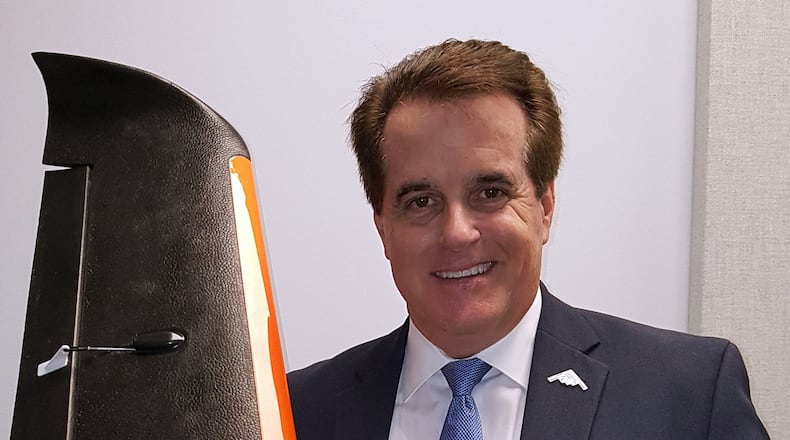Gregory Wirth, a former paramedic who worked in an emergency ward and trauma center in West Virginia, came to Waynesville in 1987 for a more financially lucrative position in pharmaceutical sales.
“I didn’t feel I could stay current in the medical field, so stepped away,” he said. “But I started having disturbing dreams of the trauma center, so I checked into my status and discovered that my paramedic’s license had expired, and I’d have to spend $12,000 to get licensed again.
“I couldn’t afford that, but decided to renew my emergency medical technology (EMT) status, and the dreams stopped.”
While Wirth was taking refresher courses through Sinclair Community College, his son was taking an intro course in Unmanned Aerial Systems (UAS). “Since I had a student’s pilot license, he’d ask me questions, so I read his textbook and decided to take the same class with the same professor – it was a blast.”
Wirth was hooked, especially after learning that he could earn a four-year bachelor of science degree in UAS technology at Sinclair. “There are short-term emergency medical responses possible with UAS technology, and I’d like to bring this to rural townships.”
“I’ve been on calls where two vehicles were involved in an accident, but we only found one – with UAS technology, we could have spotted the other under the water.
“This program can tie into medicine and improve outcomes; it provides eyes on the ground without endangering rescue workers.”
UAS includes much more than just drones with the ability to view scenes and activity from above; its technology includes sensors that can do such sophisticated tasks as air sampling, heat detection, identification of toxins, with the ability to relay information in real time.
“The detection of toxic gases and fire hazards at emergency accident sites can help avoid explosions and loss of life.”
With his background in medical emergencies and his newfound understanding of UAS technology’s expanded uses, Wirth’s mind was flooded with possibilities.
To make his ideas a practical reality, Wirth submitted a proposal that encompassed numerous possibilities to Sinclair’s first Unmanned Aerial Systems Business Plan Competition, and, in July, was pronounced the winner. He’ll participate in a six-week UAS Accelerator by the Entrepreneur’s Center, which will offer support for the creation of his new venture. The program was made possible through grants received by Sinclair through the National Science Foundation and other sources.
“After I submitted my idea, I ran through evaluations and was surprised to win,” Wirth notes, “The six-week Accelerator program will teach me how to structure the business-end of the company and take away roadblocks, and creates a spot for new opportunities.”
His newly founded company, Airborne Solutions of Ohio, LLC, has been incorporated in Ohio.
“My first customer is Sinclair,” he says. “They’ll outsource to me, and I’ll provide flight service staffing, demonstrations, testing and more. I’ll train students to run missions and offer proof of how better to use the technology with the general public.”
He’ll work with Sinclair on new operations like mapping for insurance companies, and working with Realtors to inspect for existing damage and potential structural problems. “We’ll do site surveys without putting people into danger.”
“It allows me to get back to school, work with students and match them with opportunities.”
His son Grant, who unknowingly started his dad on a new career path, says “I was taking the class for college credit when I was in high school, and a couple of chapters were difficult so I asked him to help me understand it. Then, he decided to take it, and I think what’s happened is pretty cool.”
Now a senior at Ohio University majoring in marketing, Grant adds that “After I’m finished here, I might even go back and finish the degree Dad’s taking.”
Contact this writer at virgburroughs@gmail.com.
About the Author
